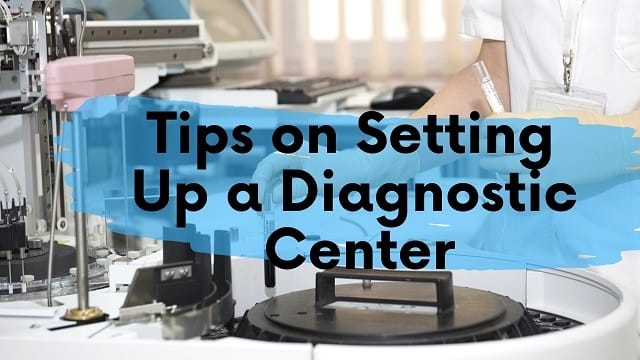Are you planning on starting a medical diagnostic center or lab of your own from scratch? If yes, you have come to the right place, because we will be talking about all the key requirements and tips that would enable you to start a lab of your own.
Whether you are a laboratory scientist, a technician, or a professional doctor, starting up a diagnostic lab of your own can be a good business. Considered as a capital-intensive business, since you will need to purchase equipment, which can be very costly when it comes to investing in them. However, this business, if successful, is very profitable. After all, people will always have a reason to need your services.
Diagnostic and medical centers play a huge role and serve as a support to hospitals and medical institutes all around the world. Most of the hospitals do not have their own labs and require equipment from different facilitators and providers. For any required tests, the patients are asked to visit the diagnostic centers at their nearest locations or hospital premises. These diagnostic centers provide services such as scans and various medical tests all over the world.
Read Also: 5 Pro Tips for Starting a Pharmacy Business
Although the first requirement to start a medical diagnostic center is to have a license to do so, a good business plan would still be required to make your business flourish in the industry. Moreover, you should have the skills to interact with doctors and hospital managements in order to gain referrals from them for the regular services.
In case you are not good at the marketing end, you should be able to hire a marketing manager for your lab who would be handling all of such future endeavors. You will simultaneously be taking care of your part of the business and core operations.
Here are a few tips that will help you in setting up your own diagnostic and medical center from scratch, enabling you to profit from it in a short period of time.
Steps to Start A Diagnostic Lab and Medical Center
The following steps are required to start a medical center or diagnostic lab:
- Registration of the business.
- Getting a license.
- Hiring of qualified technicians.
- Infrastructure of the lab should be decided.
- Setting up the equipment at the lab.
Approved License
Several rules and regulations are a must, and they need to be followed before getting into any sort of business with the medical industry, which focuses on the safety of the patients and doctors. The reports issued by the labs should be accepted by the hospitals for which an approved license is required. Any reports that are issued from a lab that is not registered are illegal. Moreover, the lab and the staff both should have a valid license. Their qualifications should meet the standards and criteria of handling such cases.
Estimated Cost
The estimated cost mainly depends on the setup and the services that you will be offering at your lab or medical center. However, the smaller your investment will be, the less room for growth you’ll have. The reason behind that is, you will not have any of the expensive equipment, which are rarely available everywhere, hence only patients with regular test requirements will be visiting you.
If you spend more on the infrastructure, the staff and the material, the outgoing patient numbers will increase.
Equipment
There is a wide range of equipment that is required in a pathology lab or diagnostic center. It is recommended to make a proper checklist before purchasing any of the items, so you do not miss any on your list. There are times when the staff and infrastructure of your lab is up to the mark, but you do not have the proper equipment and material, which adds to the negative side of the business.
A wide range of tools will make your lab diverse and more productive. Most patients will expect you to have all the required material at once place, which also adds to their convenience, convincing them to visit your lab more often.
The list of items should be regularly revised as well, making sure there is enough stock. Some important items are, auto analyzers, Elisa washers, terasaki plates, blood cell counters, a fridge, and a microscope just to name a few. Other than these few items mentioned, the list is based entirely on the diversification of the services offered.
Space
Any lab or diagnostic center should have enough space to accommodate at least a hundred patients at once. Insufficient space due to which the patients have to merge together can be a huge drawback for your business.

